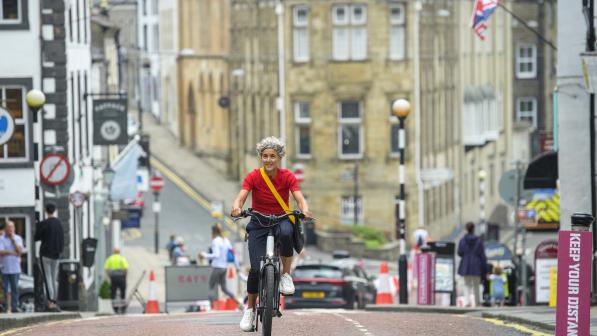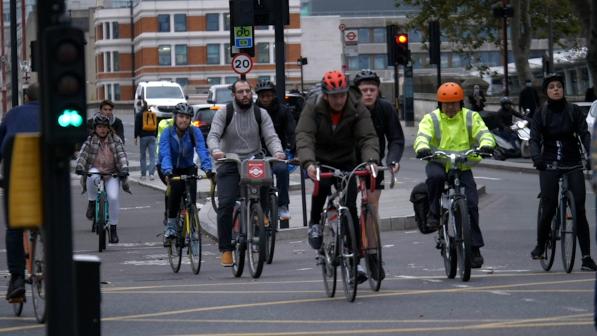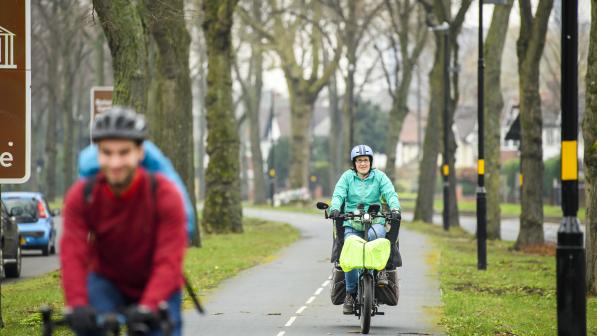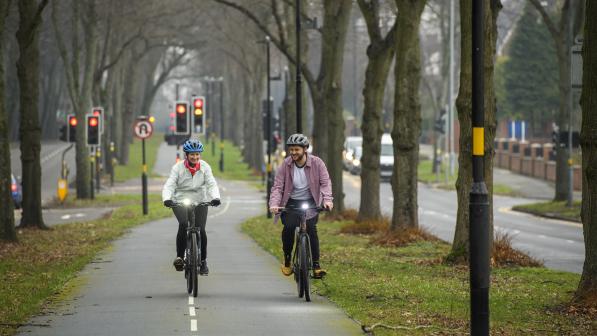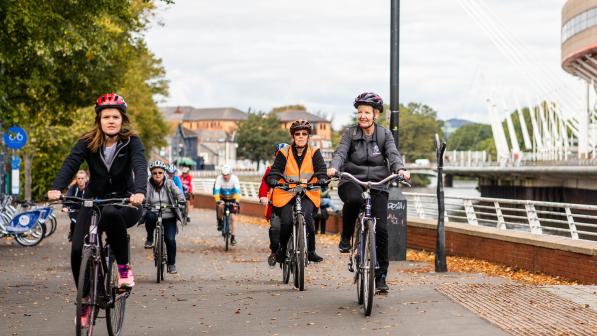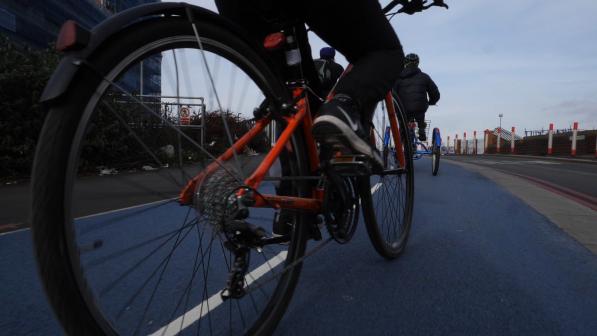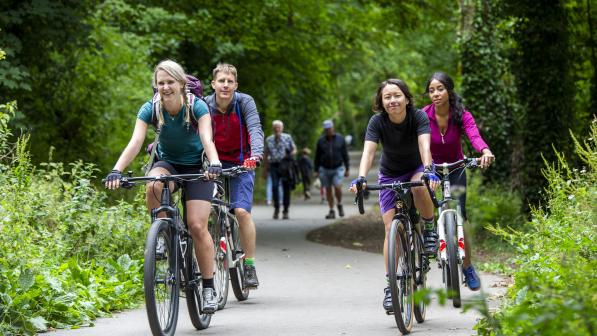Cycling UK writes to prime minister as cycle lane funding cut by 75 percent

Cycling UK has joined its partners in WACA and more than 146 other organisations, including Campaign for Better Transport and Asthma + Lung UK, to write to the prime minister protesting at the disproportionate level of cuts to funding for cycling and walking infrastructure. The coalition of organisations is also seeking a reversal to the cuts and commitment to maintain previous levels of funding.
Despite recent government acknowledgement of the likely failure to achieve its modest target of doubling current cycling levels in England from two per cent to four per cent of all journeys, on Thursday 09 March in an update to Parliament, the transport secretary announced massive cuts to future spending on cycling.
This government has effectively devastated the legacy of successive Conservative administrations and their work to get Britain cycling
Sarah Mitchell, Cycling UK chief executive
The news has been met with dismay by active travel groups and councils which say these unnecessary cuts will set back growth in cycling by more than a decade.
Sarah Mitchell, Cycling UK chief executive said: “In one move, this government has effectively devastated the legacy of successive Conservative administrations and their work to get Britain cycling.
“At a time when people are faced with a cost of living crisis where they are questioning their transport choices, making cycling and walking easier is a cost effective area for government investment.
"We know that protected spaces for cycling can help save lives. Cycle lanes are cheap to build, and the consequent uptake in health and wellbeing benefits are well documented, as are the impact on reducing emissions when we have people drive less and cycle more for shorter journeys.”
In 2020, the government committed to invest £2 billion on active travel by 2025 but as the cycling minister admitted to Parliament, they are currently underspending their current allocation for active travel.
The minister stated that to date, the government has only invested £850 million in active travel, which until yesterday left £1.25 billion to be spent over the remaining two years leading up to 2025.
The cuts announced last week were tucked away in a wider statement about continued delays to HS2 and other major road projects. They effectively reduce funding for cycle lanes and other schemes outside of London to encourage more walking from £200 million a year to £50 million – a 75 percent reduction.
The government announced it would spend over £40bn on transport schemes in the next years, which included only £100m on cycling and walking. This means that in England, less than 0.25 per cent of capital funding - which goes on infrastructure projects like HS2, building new roads and cycle ways - is now to be invested into active travel. This is despite walking and cycling making up for two percent of all journeys.
Unlike other major infrastructure projects, the level of cuts effectively puts a halt to the modest progress the current administration had made at increasing cycling and walking over the last 10 years.
During this period, local authorities have slowly developed the staff expertise in implementing active travel measures. With the latest cuts, unlike in advanced manufacturing or major projects like HS2, this expert knowledge will not be retained and councils will have to start from scratch when funding returns.
“Government should be providing more for active travel not cutting it. This funding decision is disastrous, and will set back the growth of cycling and walking in England for another decade at least,” said Ms Mitchell.
The reaction of the Walking and Cycling Alliance, made up of Sustrans, British Cycling, Cycling UK, Living Streets, the Ramblers and the Bicycle Association, was as expected. Xavier Brice, Sustrans CEO speaking on behalf of WACA said it was “heart-breaking”.
It is heart-breaking to see vital active travel budgets wiped away in England, at the exact time when they are most essential to UK economic, social and environmental prospects
Xavier Brice, Sustrans CEO
“It is heart-breaking to see vital active travel budgets wiped away in England, at the exact time when they are most essential to UK economic, social and environmental prospects,” said Mr Brice.
“It simply doesn’t make sense to withdraw investment in active travel at this time.
“Representing a two-thirds cut to promised capital investment in walking, cycling and wheeling, these cuts are a backward move for active travel and will counteract the tremendous progress we’ve seen in recent years. These cuts are disproportionate compared to those for road and rail and will leave England lagging far behind other UK nations and London, at a time when we need to be raising the bar everywhere.
“Promised government targets of 50% of all journeys in English towns and cities being walked or cycled by 2030, are made impossible by these cuts.
“People walking, wheeling and cycling take 14.6 million cars off the road, saving 2.5 million tonnes of greenhouse gas emissions every year.
“More than ever, people want and need support to walk, cycle or wheel, and these cuts will impact those that would have benefited most, limiting our choice to travel healthily, cheaply and emissions-free.”
Currently the National Audit Office is investigating “whether government is set up to achieve its ambitions for increased cycling and walking by 2025 and beyond and deliver value for money through these investments” and anticipates publishing its findings in summer 2023.
